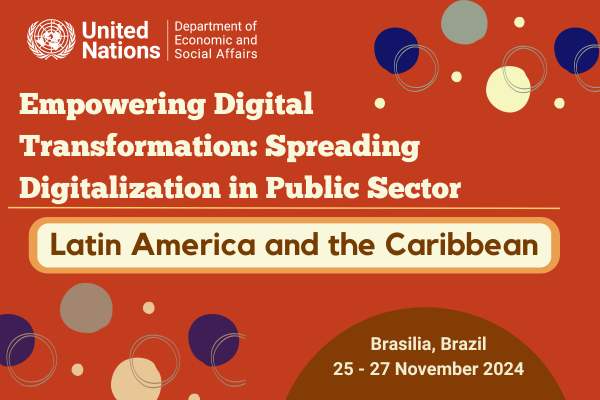Over the past decade Governments have given a growing importance and priority to digital transformation, resulting in more people benefiting from the efficiencies and conveniences of digital government services. Countries gradually improve the overall e-government development by investing in telecommunications infrastructure, online services delivery, and extended access to public information.
At the same time, the disparities and digital divides remain significant within and between the regions, especially among countries in special situations: the least developed countries (LDC), landlocked developing countries (LLDC) and small island developing states (SIDS). Disparities are more pronounced in unevenly developed legislative frameworks supporting e-government development, in limited level of online services digitalization, and in the practices of e-participation.
Likewise, disparities are significant in the level of full digitalization of online services. For many types of services, the government portals provide information and often supply forms to fill out, but one still needs to appear in person to complete transactions. Registering a business online, for example, is fully digitalized in half of the UN Member States, 41 per cent of LLDCs, 38 per cent of SIDS, and 20 per cent of LDCs. Further, the number of countries providing information and services that target specific vulnerable populations has decreased by an average of 5 per cent since 2022 with the sharpest decline (13.5 per cent) recorded for service provision to immigrants. The provision of services for women and people living below the poverty line has also declined by 9 and 8.3 per cent, respectively.
This highlights a critical need for targeted efforts and support to enhance e-government capabilities in each of the regions, ensuring that digital transformation can contribute effectively to sustainable development and improved public services.
The objectives of the Workshop:
In this context, UN DESA’s Division for Public Administration and Digital Government (DPIDG) is organizing a 3-day long workshop on “Empowering Digital Transformation: Spreading Digitalization in Public Sector in Latin America and the Caribbean” on 25-27 November 2024 in Brasilia, Brazil in collaboration with the Red Interamericana de Gobierno Digital (RedGEALC), under the umbrella of the VIII Digital Government Ministerial Meeting of The Americas.
The primary thematic areas of the Workshop are as follows:
The participants will focus on discussing (i) the key findings of the UN E-Government Survey at global, regional and local levels, with a particular focus on the LOSI toolkit and AI in digital governance; (ii) the national strategies for digital development and (iii) the methodologies and tools to self-assess e-government development in their respective countries.
Link to the 2030 Agenda for Sustainable Development:
Goal 8. Promote sustained, inclusive and sustainable economic growth, full and productive employment and decent work for all
Goal 9. Build resilient infrastructure, promote inclusive and sustainable industrialization and foster innovation
Goal 10. Reduce inequality within and among countries
Goal 11. Make cities and human settlements inclusive, safe, resilient
Goal 16. Promote peaceful and inclusive societies for sustainable development, provide access to justice for all and build effective, accountable and inclusive institutions at all levels
Goal 17. Strengthen the means of implementation and revitalize the Global Partnership for Sustainable Development
 Welcome to the United Nations
Welcome to the United Nations
